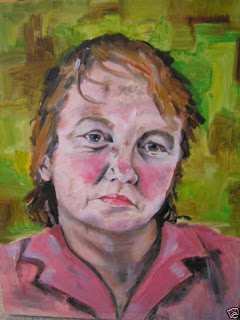 I remember some years ago hearing evangelist J John speaking about a family funeral which he had attended. As the family and other mourners gathered together after the funeral service, one person was heard to whisper "I wonder how much he left." "Everything!" was J John's immediate response! The biblical book of Ecclesiastes chapter 5 verse 15 reads as follows: 'We all come to the end of our lives as naked and empty-handed as on the day we were born. We can't take our riches with us.'
I remember some years ago hearing evangelist J John speaking about a family funeral which he had attended. As the family and other mourners gathered together after the funeral service, one person was heard to whisper "I wonder how much he left." "Everything!" was J John's immediate response! The biblical book of Ecclesiastes chapter 5 verse 15 reads as follows: 'We all come to the end of our lives as naked and empty-handed as on the day we were born. We can't take our riches with us.'I have mentioned before on my blog that I have for some time been an eBay user. I have bought and sold quite a few things over the years. I particularly enjoy old books, but on occasions I come across other interesting items. I wonder if you recognise the person in the image? A few days ago I happened to come across an eBay seller who was selling quite a number of items which used to belong to the late Mo Mowlam MP (the image is of an oil painting of Mo). It appears that when Mo's husband died (subsequent to her own death), the eBay seller purchased some items from the estate, and decided to list them on eBay. There were some fascinating items, and they attracted quite a lot of bidding.
Some may think it a bit morbid to be buying items from a dead person's estate! It certainly got me thinking about the reality of the verse from Ecclesiastes. The truth is that all the material possessions we might accumulate in this life are ours on a purely temporary basis. All the things we regard as "ours", we will one day have to leave behind. We would be wiser regarding ourselves as temporary stewards of what we have rather than permanent owners.
When Mo Mowlam died, she had to leave behind all her possessions, which included many items related to her period serving in the Northern Ireland Office. She appears to have been a significant figure during the lead up to the Good Friday Agreement. In early 1998, when negotiations in Northern Ireland had reached an impasse, Mowlam took a significant political risk. She entered the Maze Prison near Belfast, to speak to convicted Irish paramilitaries face-to-face, when it became apparent that the peace process required their backing. Following her visit with the prisoners, their political representatives announced they were rejoining the talks. Shortly after, the Good Friday Agreement for Ireland was secured on 10 April 1998.
I am sure that all the awards and presentations meant a great deal to her when she received them. But what do they mean to her now? In other words, what is it that matters ETERNALLY? Ultimately what matters is our relationship with God, for that transcends earthly life. That's why God sent Jesus, so that through Jesus we might know God, now and into eternity.

